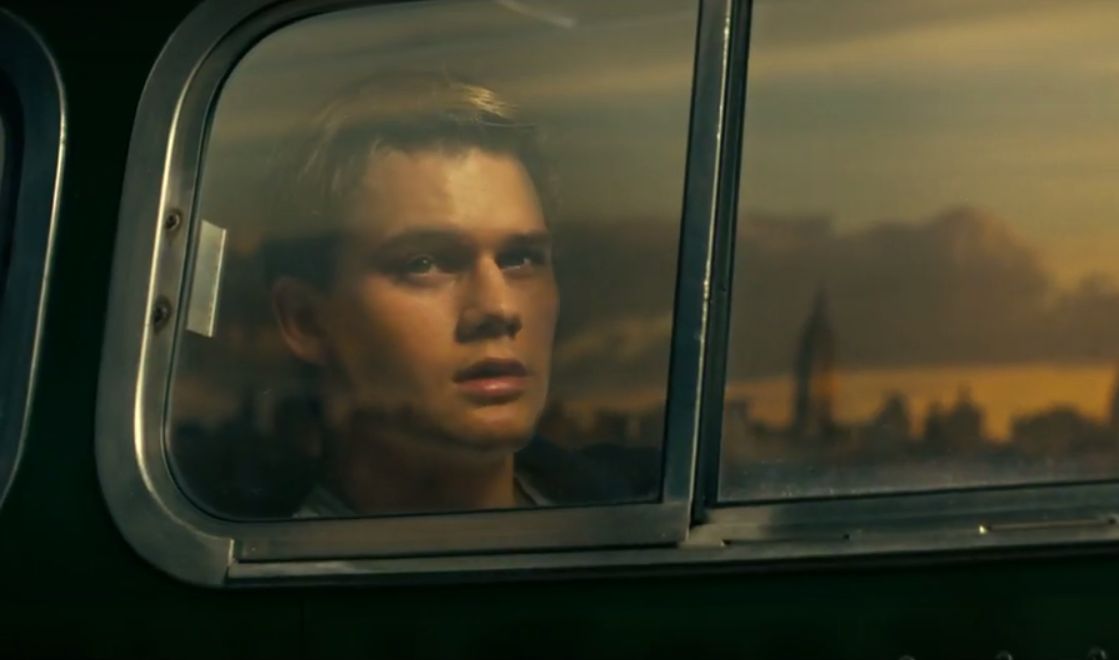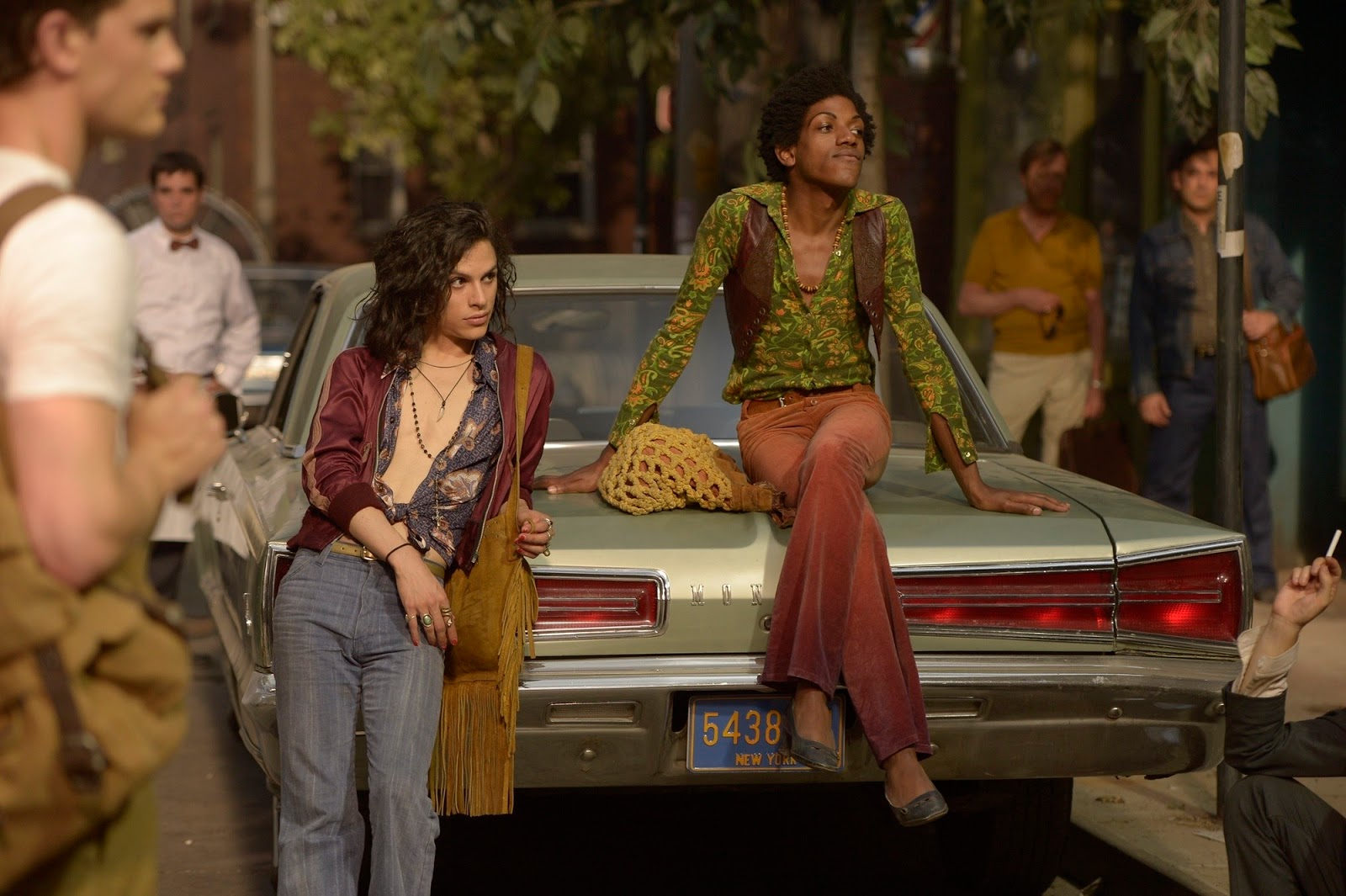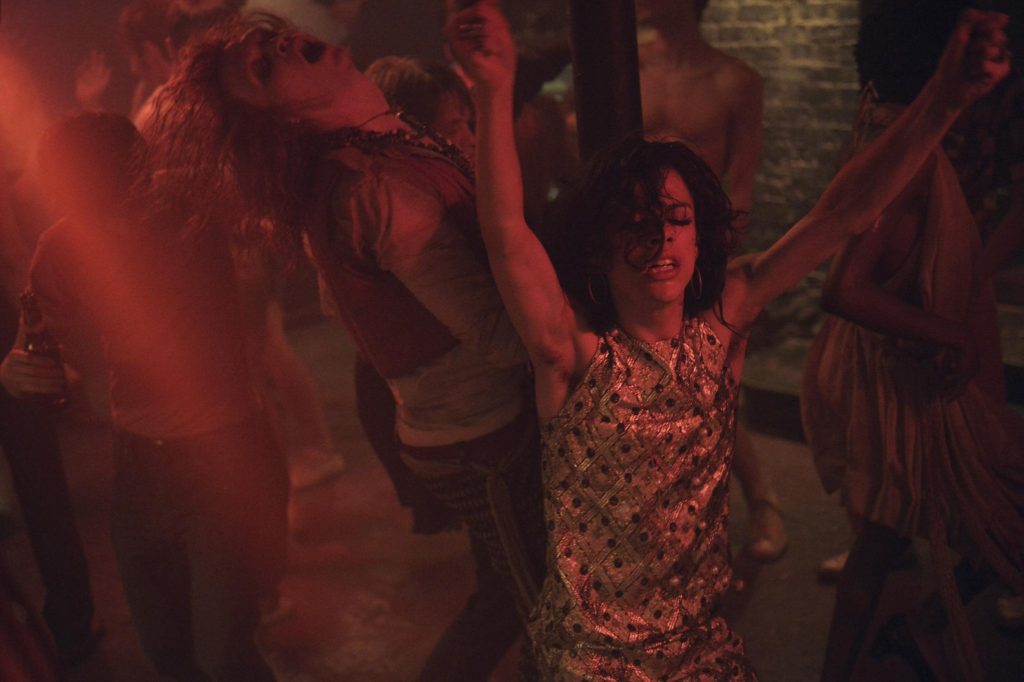Gay Rights Film Is A Failure On Every Level
DIRECTOR: ROLAND EMMERICH/2015
 Let’s have a brief moment of sympathy for Roland Emmerich: a gay man himself, he attempted to make an important film on the seminal moment in the battle for LGBT equality, the Stonewall riots of 1969. Perhaps Emmerich saw this movie as the Selma of the gay rights movement. And what did he get for his trouble? A boycott, coming from inside the LGBT house. The Gay-Straight Alliance Network has over 24,000 signatures on its petition to boycott Stonewall, calling it a “whitewashed version of queer history”.
Let’s have a brief moment of sympathy for Roland Emmerich: a gay man himself, he attempted to make an important film on the seminal moment in the battle for LGBT equality, the Stonewall riots of 1969. Perhaps Emmerich saw this movie as the Selma of the gay rights movement. And what did he get for his trouble? A boycott, coming from inside the LGBT house. The Gay-Straight Alliance Network has over 24,000 signatures on its petition to boycott Stonewall, calling it a “whitewashed version of queer history”.
The activists are right. Stonewall is bad history. It’s also bad filmmaking.
We shouldn’t be surprised that Stonewall is not a good film. This is Roland Emmerich, after all: the director of such cheese-laden spectacles as Independence Day,Godzilla, 2012 and Whitehouse Down. The hackneyed narrative, the one-dimensional characters, the clunky dialogue – why, that’s just the Emmerich touch! Sometimes its even fun to watch. But it’s genuinely frustrating this time. This is not an action hero film, not a disaster movie, not a story about a giant lizard. Stonewall is, purportedly, the story of a catalytic moment in American history. We live in a different world because of what started in New York on those hot June nights 46 years ago. Someone needs to tell the story and tell it well. Roland Emmerich was clearly not the director for the job.
The short version of the history is this: In 1969, homosexual sex was illegal in every state but Illinois, punishable by fines or prison sentences; and homosexuality was regarded and treated as a mental illness. New York City had the largest population of gays in the U.S., but also aggressively enforced anti-sodomy laws with raids on gay bars and bath houses. It was not uncommon for 100 people a week to be arrested in such raids. The Stonewall Inn, a mafia-owned bar in Greenwich Village, was a dive bar catering to the most marginalized in the queer community. Still, raids on the bar typically ended peacefully enough after a handful of arrests. But social unrest was increasingly common in the 1960s – civil rights activism, student anti-war protests, the rise of the women’s movement. In the early morning hours of June 28, 1969 some Stonewall patrons resisted arrest during an ordinary raid, a crowd gathered, and the police quickly lost control of the situation. The violent protests and demonstrations that followed lasted for almost a week, and an organized gay rights movement was born out of those protests. The first Gay Pride parade, which swelled to 10,000 marchers, was held in New York a year later to commemorate the Stonewall riots.
 Part of the problem with Stonewall is evident in the trailer – and negative reactions to the film started as soon as the trailer was released. Instead of letting real veterans of Stonewall stand at the center of the story, Emmerich gives us an entirely fictional character: Danny Winters (Jeremy Irvine), all-American boy. He’s a handsome, white, high school football player from a small town in Indiana, the son of devoutly Christian parents. For good measure his dad is his high school football coach. Far too much of the movie centers on Danny’s fabricated back story: his love affair with the high school quarterback (yes, Danny’s lover is the quarterback and his dad is the coach – this is not a subtle movie), the discovery of their relationship by classmates, Danny’s rejection by his parents. He’s already got a scholarship to Columbia, so Danny heads to New York and the Christopher Street gay district.
Part of the problem with Stonewall is evident in the trailer – and negative reactions to the film started as soon as the trailer was released. Instead of letting real veterans of Stonewall stand at the center of the story, Emmerich gives us an entirely fictional character: Danny Winters (Jeremy Irvine), all-American boy. He’s a handsome, white, high school football player from a small town in Indiana, the son of devoutly Christian parents. For good measure his dad is his high school football coach. Far too much of the movie centers on Danny’s fabricated back story: his love affair with the high school quarterback (yes, Danny’s lover is the quarterback and his dad is the coach – this is not a subtle movie), the discovery of their relationship by classmates, Danny’s rejection by his parents. He’s already got a scholarship to Columbia, so Danny heads to New York and the Christopher Street gay district.
Roland Emmerich has said that he wanted to tell this particular story because homelessness among LGBT youth is still at crisis levels, often because of the kind of rejection by family that Danny experiences. That’s a valuable issue to address, and perhaps someone should tell that story well, too. But Stonewall would have been better served by locating itself entirely in New York and it’s more diverse characters; in the mob-run gay bars, in the casual brutality faced by queer residents, and in their ongoing conflicts with police. All of that is diluted by the ongoing focus on Danny’s troubles.
In other words, it would be great if “Stonewall” the movie had actually been about Stonewall the uprising – rather than “The Perils of Danny”.
 But Danny does have troubles aplenty: his first friend in New York is a street hustler named Ray/Ramona (Johnny Beauchamp) who has a fiery and unrequited love for Danny. Danny never returns Ray’s feelings, falling instead for an established neighborhood activist, Trevor (Jonathon Rhys Meyers). Audiences will spot Trevor’s game long before Danny does. Danny is beaten by police, forced into prostitution to survive, and tricked out against his will by the mob. The gay community that he encounters is often predatory, and a couple of the older “queens”are depicted as especially grotesque. I won’t suggest that Roland Emmerich is himself homophobic, but there’s definitely material here to fuel someone else’s homophobia.
But Danny does have troubles aplenty: his first friend in New York is a street hustler named Ray/Ramona (Johnny Beauchamp) who has a fiery and unrequited love for Danny. Danny never returns Ray’s feelings, falling instead for an established neighborhood activist, Trevor (Jonathon Rhys Meyers). Audiences will spot Trevor’s game long before Danny does. Danny is beaten by police, forced into prostitution to survive, and tricked out against his will by the mob. The gay community that he encounters is often predatory, and a couple of the older “queens”are depicted as especially grotesque. I won’t suggest that Roland Emmerich is himself homophobic, but there’s definitely material here to fuel someone else’s homophobia.
Surrounded by all of this sordidness, Danny never loses his square jawed, Midwestern, Gap-ad wholesomeness. He is a new version of an old type: the ingenue in the big, bad city. The camera even shows him crying as he is engaged in prostitution so that he won’t risk losing audience sympathy.Though the street scenes of Stonewall are full of hungry young hustlers, femmes, drag queens, transvestites, blacks, Latinos and the occasional butch lesbian, the story is told from the perspective of the most blandly inoffensive gay character possible. That cinematic decision was not an accident and not without intention. In a Buzzfeed interview Roland Emmerich explained, “You have to understand one thing: I didn’t make this movie only for gay people, I made it also for straight people. I kind of found out, in the testing process, that actually, for straight people, (Danny) is a very easy in. Danny’s very straight-acting. He gets mistreated because of that. (Straight audiences) can feel for him.” That’s right: Emmerich suggests that a straight-acting gay character is inherently more sympathetic – especially if he suffers because he’s straight-acting.
 What a waste, that Emmerich didn’t focus on helping audiences to “feel for” the real people behind the Stonewall riots. Eyewitnesses report that black and Latina trans women and lesbians were at the heart of the action. In Stonewall the movie, the first brick is thrown by Danny himself. Real activists like Marsha P. Johnson, Stormé DeLarverie, Ray Castro and Sylvia Rivera are either sidelined or erased entirely; and a fictional cisgender white male becomes the hero of the hour.
What a waste, that Emmerich didn’t focus on helping audiences to “feel for” the real people behind the Stonewall riots. Eyewitnesses report that black and Latina trans women and lesbians were at the heart of the action. In Stonewall the movie, the first brick is thrown by Danny himself. Real activists like Marsha P. Johnson, Stormé DeLarverie, Ray Castro and Sylvia Rivera are either sidelined or erased entirely; and a fictional cisgender white male becomes the hero of the hour.
As Danny, Jeremy Irvine’s acting is flat. At one point another character jokes that Danny looks like a Ken doll. In fact he does, and shows only slightly more emotional range. As Ray, Johnny Beauchamp does his best with the classic “tragic gay” trope. The finest performance is from Otoja Abit, as Marsha P. Johnson – one of the few real-life activists who shows up in the film.
There are always intersections between systems of oppression and discrimination, but experiencing bigotry of one kind does not immunize against inflicting bigotry on others. A white woman may have experienced sexism but still promote racism. A black man may have experienced racism but still be homophobic. Even within the queer community there have been hierarchies, different political ideologies and prejudices – issues that Stonewall touches on only briefly and superficially. It’s hard to avoid the conclusion that Roland Emmerich told the story of Stonewall not as it was, but through the filter of his own position of privilege. “As a director you have to put yourself in your movies,” he said. “And I’m white and gay.” To be more precise, he is white, gay, cisgender and consciously appealing to straight audiences by making the star of his movie the “right” kind of gay. That’s not just unfortunate, it’s offensive and damaging.
 It’s perhaps worth acknowledging the elephant in this film review. ZekeFilm is a faith-based organization and many of the writers, myself included, are Christians: so are many of the readers of this site. We may not all agree on specific issues, either personal or legal, surrounding gender and sexuality. But what Stonewall could have done, should have done, was help us to empathize with what was behind those riots so many years ago. Why was the time ripe for an uprising that has now spread around the world and has resulted in an overhaul of laws around sex and marriage in this country? Or, in a different and more personal movie, Emmerich could have stirred our compassion for real young people like Danny and Ray who find themselves cast off by their families and struggling to survive simply because of their sexual orientation or gender identity. It still happens, and that really is a problem. But neither of those worthy goals were achieved with this movie. In fact, unless it drives people to try to learn the real stories, Stonewall may do more harm than good to the LGBT community.
It’s perhaps worth acknowledging the elephant in this film review. ZekeFilm is a faith-based organization and many of the writers, myself included, are Christians: so are many of the readers of this site. We may not all agree on specific issues, either personal or legal, surrounding gender and sexuality. But what Stonewall could have done, should have done, was help us to empathize with what was behind those riots so many years ago. Why was the time ripe for an uprising that has now spread around the world and has resulted in an overhaul of laws around sex and marriage in this country? Or, in a different and more personal movie, Emmerich could have stirred our compassion for real young people like Danny and Ray who find themselves cast off by their families and struggling to survive simply because of their sexual orientation or gender identity. It still happens, and that really is a problem. But neither of those worthy goals were achieved with this movie. In fact, unless it drives people to try to learn the real stories, Stonewall may do more harm than good to the LGBT community.
Stonewall is a bad movie, however noble Emmerich’s intentions may have been. It suffers the ham-handedness that afflicts many of his films, and it short changes the individuals who really lit the fire of the gay rights movement. It’s not the film they deserve: I still hope that someone else will make that movie.

